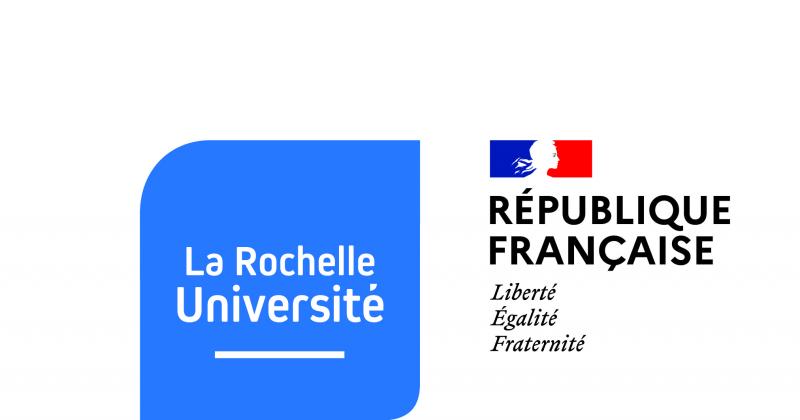COFUND PhD position - Comparative Public Policy in Environmental and Urban Management
| ABG-133796 | Thesis topic | |
| 2025-10-13 | EU funding |

- Economy, management
Topic description
Title of the thesis project: Public Water Management in Coastal Areas
Scientific description of the research project
Water management in general is a task for local authorities, for example, as part of their public services for the general well-being. Furthermore, it is addressed both in the context of the United Nations' Sustainable Development Goals UN-SDGs) and the six environmental goals of the European Union. To this backdrop, the EU launched its European Water Resilience Strategy, on June 4, 2025. This strategy addresses the escalating challenges of water scarcity, pollution, and climate-induced water stress across Europe.
Coastal water management (CWM) is a wicked problem (Gruendel, 2022) and as such transcends the knowledge possessed by experts. Wicked problems necessitate to accommodate both participatory and expert-based decision making, producing a form of technical democracy (Bevir, 2010) in which problem solving requires the orchestration of conflict. To this backdrop, citizen participation should be carefully enhanced (Manes Rossi et al. 2023) to the end of their engagement in co-creation and co-production in municipal risk governance (Haustein & Lorson, 2021) and decision making, sometimes also discussed a citizen science in the European Union (Socientize EU Project, 2013). CWM faces significant challenges due to population growth, economic development, and environmental pressures (Magister et al., 2020; Huwaina & Koestoer, 2022). Seawater intrusion and groundwater salinization are major concerns in coastal aquifers, exacerbated by intensive groundwater abstraction and climate change. Various approaches to water management have been implemented, including seawater toilet flushing in Hong Kong and water imports from China (Huwaina & Koestoer, 2022) or desalinization.
Effective management requires assessing water quality, quantity, and source distance to meet community needs (Sukri et al., 2023). Remedial measures against seawater intrusion include conventional methods and modern techniques like hydraulic barriers (Muhammad Zaid Qamar et al., n.d.). Proper governance, sustainable water use, and community involvement are crucial for safeguarding coastal water resources (Muhammad Zaid Qamar et al., n.d.; Ahmad Syarif Sukri et al., 2023). Additionally, synchronization of regulations between central and local governments is necessary for effective water management in coastal areas (Magister et al., 2020). The scientific literature in public management emphasizes the need for multidisciplinary and multi-dimensional approaches to water management, moving beyond market-based perspectives to more integrated models that address the complex challenges of sustainable water resource management. Price mechanisms include block tariffs, various charges, rebates, and cross-subsidies, while non-price mechanisms encompass management, engineering, regulatory tools, public education, and community involvement (Araral & Wang, 2013). Effective water management requires consideration of governance, knowledge of usage patterns, and integrated approaches that incorporate multiple sources, actors, and application).
In short, water management is a sensitive and complex question, for which we propose here to supervise a thesis work in innovative public management to bring the necessary elements of helping public decision making. Indeed, while a certain number of research works have already been carried out, particularly in law and management (Pissaloux & al., 2024; Porcher, 2024) and interdisciplinary (Euzen & al., 2017) highlighting a certain number of very interesting lessons, these remain piecemeal and difficult to action for the public manager. New and creative approaches are often mobilized to solve complex issues. Ansell and Torfing (2021) assert that only new forms of democratic governance (Bevir, 2010), strategic design (Steinberg, 2014), design for public innovation (Bason, 2017) and design for the public sector (Junginger, 2017) can overcome the challenges of contemporary complex issues. Last, but not least there is strong relation to an ongoing research project at Rostock University named “Ocean Technology Campus Rostock (https://www.eu-conexus.eu/en/2024/10/22/ocean-technology-campus-rostock… ).
The first step here will consist in a literature review of existing academic work on public water management around coastal zones, examining existing as well as future technical solutions (treatment of polluted water for instance) as well as former solutions used by older local authorities, according to an historical approach.
In a second step, the PhD will try to :
- identify the difficulties encountered in practice and the solutions adopted and implemented in coastal territories sharing common problems (coastal and tourist towns). 2 territories have been selected for this purpose, that of Rostock in Germany and La Rochelle in France but others could be added for benchmarking purposes. Conflicts of use between population, industry and agriculture, important pollution after years of intensive pesticides use by the latter, as well as difficulties by local authorities in safeguarding wellfields characterize the context in both towns.
- identify the various solutions for the communities in coastal zones with the advantages and potential disadvantages on the aforementioned dimensions. Public management is conceived here as both a technical and human solution to identify and problematize issues and choose an organizational model to implement solutions (Pollitt, Bouckaert, 2017). The goal is to develop a European comparative perspective in public management, in order to compare the different modes of public management for wicked problems such as water management at the scale of an urban coastal territory.
Methods
The methodology used will be mixed (e.g. empirical and conceptual) and combine elements of case study (Ragin, 1998; Yin, 2018) and international comparative perspective in public management. Case material will include primary data collection (interviews, observations) as well as secondary data sources (existing literature, reports…)
Expected results
The results of the PhD will include comparative knowledge on public management models and theories as well as managerial recommendations for La Rochelle and Rostock.
Starting date
Funding category
Funding further details
Presentation of host institution and host laboratory
Since its creation in 1993, La Rochelle Université has been on a path of differentiation.
Thirty years later, as the university landscape recomposes itself, it continues to assert an original proposition, based on a strong identity and bold projects, in a human-scale establishment located in an exceptional setting.
Anchored in a region with highly distinctive coastal features, La Rochelle Université has turned this singularity into a veritable signature, in the service of a new model. Its research it addresses
the societal challenges related to Smart Urban Coastal Sustainability (SmUCS).
The new recruit will join the EOLE (Environnement Organisation Legislation) Laboratory.
Cotuelle: University of Rostock (UROS), Germany. Institute for Business Administration (Faculty of Economic and Social Sciences).
Institution awarding doctoral degree
Candidate's profile
The PhD candidate should hold a Master’s degree in public management, political science, law, environmental studies, or related fields, with solid knowledge of public policy and governance. Strong skills in qualitative research methods (case studies, interviews, document analysis) and interest in comparative and interdisciplinary approaches are essential. The student should demonstrate a capacity for critical analysis of wicked problems and openness to participatory, design-oriented methods. Excellent writing, communication, and stakeholder engagement skills will be required for collaboration with local authorities, communities, and international partners.
Vous avez déjà un compte ?
Nouvel utilisateur ?
Get ABG’s monthly newsletters including news, job offers, grants & fellowships and a selection of relevant events…
Discover our members
 MabDesign
MabDesign  CASDEN
CASDEN  CESI
CESI  Aérocentre, Pôle d'excellence régional
Aérocentre, Pôle d'excellence régional  ASNR - Autorité de sûreté nucléaire et de radioprotection - Siège
ASNR - Autorité de sûreté nucléaire et de radioprotection - Siège  Tecknowmetrix
Tecknowmetrix  TotalEnergies
TotalEnergies  Nokia Bell Labs France
Nokia Bell Labs France  Laboratoire National de Métrologie et d'Essais - LNE
Laboratoire National de Métrologie et d'Essais - LNE  Institut Sup'biotech de Paris
Institut Sup'biotech de Paris  Généthon
Généthon  SUEZ
SUEZ  PhDOOC
PhDOOC  Ifremer
Ifremer  MabDesign
MabDesign  ANRT
ANRT  ADEME
ADEME  ONERA - The French Aerospace Lab
ONERA - The French Aerospace Lab  Groupe AFNOR - Association française de normalisation
Groupe AFNOR - Association française de normalisation


